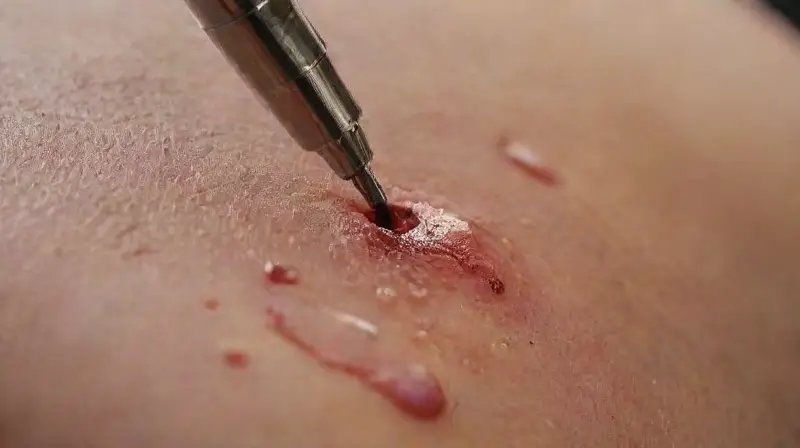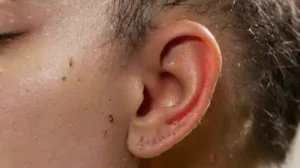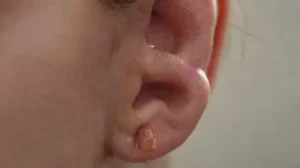Getting a tattoo can be an exciting way to express oneself and create a permanent piece of art. However, if the procedure is not performed correctly, it can lead to serious infection risks that may jeopardize health and well-being. Ensuring proper hygiene and professional standards is essential to prevent such complications and enjoy a safe tattoo experience.
Many people overlook the potential health hazards associated with tattooing, especially when they choose unlicensed or inexperienced artists. Recognizing the importance of sterile techniques and aftercare is vital in minimizing the chances of infection and long-term issues.
Inadequate sterilization of equipment
Proper sterilization of tattoo tools is fundamental to preventing infections. When equipment is not thoroughly cleaned and sterilized, bacteria, viruses, and fungi can survive and be transmitted to the skin during the procedure. This risk increases significantly with the use of shared or improperly maintained needles.
Professionals employ medical-grade sterilization techniques such as autoclaving to eliminate pathogens effectively. Unfortunately, some unlicensed artists or shops may cut corners, reusing needles or neglecting sterilization protocols. This negligence can result in infections that are difficult to treat and may require medical attention.
Using contaminated tools can lead to serious bacterial or viral infections, including hepatitis B, hepatitis C, and tetanus. These conditions can cause long-term health problems and, in severe cases, become life-threatening. Awareness and vigilance are crucial for anyone considering a tattoo.
Unsanitary environment and workspace
The environment in which the tattooing takes place plays a critical role in infection prevention. A clean, hygienic workspace ensures that the risk of contamination is minimized. Conversely, dirty surfaces, unclean gloves, or improperly maintained equipment can all harbor pathogens.
Reputable tattoo artists maintain strict cleanliness standards, including disinfecting surfaces regularly and using disposable gloves during the procedure. They also ensure that all materials, such as ink cups and cloths, are sterile and single-use. This level of hygiene significantly reduces the possibility of infection transmission.
In contrast, a workspace that is cluttered or poorly maintained may expose clients to bacteria from the environment. Such conditions increase the likelihood of skin infections, allergic reactions, or other complications. Choosing a licensed and hygienic studio is an essential step toward safety.
Poor tattooing technique

An artist’s technique can directly impact the risk of infection. Using improper needle depth or inconsistent ink application can cause skin trauma, which increases vulnerability to microbes. A skilled artist knows how to minimize damage and promote healing.
Furthermore, applying excessive pressure or failing to adhere to sterile procedures can introduce bacteria into the skin. This not only hampers recovery but can lead to infection and other skin issues. Proper technique involves a delicate balance of skill, hygiene, and knowledge.
Clients should be attentive to the professionalism of their tattoo artist. If the process appears rushed or sloppy, or if the artist skips necessary sterilization steps, the risk of post-tattoo complications rises. Investing in a reputable artist ensures safer practices.
Allergic reactions and inflammatory responses
In some cases, improper tattoo procedures or low-quality inks can trigger allergic reactions. These allergic responses may not be immediate and can develop days or weeks after the procedure. Symptoms include redness, swelling, and intense itching.
Inflammatory responses are often signs of the body’s immune system reacting to foreign substances or contaminants introduced during tattooing. If inflammation lasts or worsens, it may lead to infections or scarring. Recognizing early signs is critical for prompt treatment.
Using hypoallergenic inks and following proper aftercare guidelines helps reduce the risk of adverse reactions. Consulting with a knowledgeable artist can also help identify potential sensitivities before the procedure begins.
Lack of proper aftercare
Post-tattoo care is vital to prevent infection and ensure proper healing. Failing to follow recommended cleaning and moisturizing routines can leave the skin vulnerable to bacteria and other pathogens. Ignoring aftercare instructions often results in complications.
A clean environment and gentle handling of the new tattoo help promote healing and reduce the risk of infection. Using prescribed ointments and avoiding swimming or scrubbing the area are essential practices to maintain hygiene.
Neglecting aftercare can lead to problems such as bacterial infections, scabbing, or fading of the tattoo. Proper education from the tattoo artist about how to care for the tattoo afterward is essential for a safe healing process.
Consequences of infected tattoos

Infection in a new tattoo can cause more than just localized discomfort. If untreated, bacterial infections can spread, causing systemic infections that may require antibiotics or hospitalization. In some cases, infections can lead to scarring or other chronic skin issues.
Severe infections can also result in the formation of abscesses or long-term damage to the skin and underlying tissues. These complications might necessitate medical procedures to remove infected tissue and repair damage, prolonging recovery time.
Preventing infections begins with choosing a professional, hygienic studio and following proper aftercare. Promptly addressing any signs of infection with a healthcare provider can prevent more serious health implications.
Importance of choosing licensed professionals
Selecting a licensed and experienced tattoo artist is fundamental in reducing the risk of infection. Licensed artists adhere to strict hygiene protocols and are trained in safe tattooing practices, ensuring a safer experience for clients.
Professional studios are regulated by health authorities and are subject to inspections to maintain cleanliness standards. This oversight helps ensure that all equipment is properly sterilized and that the environment is safe for tattooing.
Researching and verifying credentials before getting a tattoo can provide peace of mind. Investing in a reputable artist not only enhances the quality of the tattoo but also significantly minimizes health risks associated with improper procedures.
Conclusion
Infections from improper tattoo procedures are preventable with proper hygiene, professional practices, and informed decision-making. Choosing licensed artists and following recommended aftercare routines are essential steps to protect one’s health and ensure a positive tattoo experience.
Awareness of the potential risks and careful selection of a reputable studio can save individuals from avoidable complications. Prioritizing safety over cost or convenience ultimately contributes to the durability and appearance of the tattoo, while safeguarding overall health.







